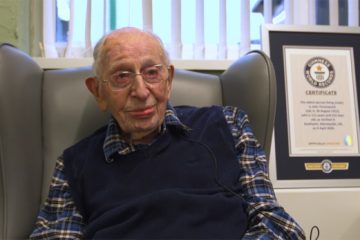The Nazi doctor Josef Mengele is responsible for the astonishing number of twins in a small Brazilian town, an Argentine historian has claimed.
By Nick Evans in Buenos Aires

The steely hearted “Angel of Death”, whose mission was to create a master race fit for the Third Reich, was the resident medic at Auschwitz from May 1943 until his flight in the face of the Red Army advance in January 1945. His task was to carry out experiments to discover by what method of genetic quirk twins were produced – and then to artificially increase the Aryan birthrate for his master, Adolf Hitler.
Now, a historian claims, Mengele’s notorious experiments may have borne fruit.
For years scientists have failed to discover why as many as one in five pregnancies in a small Brazilian town have resulted in twins – most of them blond haired and blue eyed.
But residents of Candido Godoi now claim that Mengele made repeated visits there in the early 1960s, posing at first as a vet but then offering medical treatment to the women of the town.
Shuttling between Argentina, Paraguay and Brazil, he managed to evade justice before his death in 1979, but his dreams of a Nazi master race appeared unfulfilled.
In a new book, Mengele: the Angel of Death in South America, the Argentine historian Jorge Camarasa, a specialist in the post-war Nazi flight to South America, has painstakingly pieced together the Nazi doctor’s mysterious later years.
After speaking to the townspeople of Candido Godoi, he is convinced that Mengele continued his genetic experiments with twins – with startling results.
He reveals how, after working with cattle farmers in Argentina to increase their stock, Mengele fled the country after fellow Nazi, Adolf Eichmann, was kidnapped by Israeli agents.
He claims that Mengele found refuge in the German enclave of Colonias Unidas, Paraguay, and from there, in 1963, began to make regular trips to another predominantly German community just over the border in Brazil – the farming community of Candido Godoi.
And, Mr Camaras claims, it was here that soon after the birthrate of twins began to spiral.
“I think Candido Godoi may have been Mengele’s laboratory, where he finally managed to fulfil his dreams of creating a master race of blond haired, blue eyed Aryans,” he said.
“There is testimony that he attended women, followed their pregnancies, treated them with new types of drugs and preparations, that he talked of artificial insemination in human beings, and that he continued working with animals, proclaiming that he was capable of getting cows to produce male twins.”
The urbane German who arrived in Candido Godoi was remembered with fondness by many of the townspeople.
“He told us he was a vet,” said Aloisi Finkler, a local farmer interviewed by Mr Camarasa. “He asked about illnesses we had among our animals, and told us not to worry, he could cure them. He appeared a cultured and dignified man.”
Another farmer, Leonardo Boufler, said: “He went from farm to farm checking the animals. He checked them for TB, and injected those that were infected. He said he could carry out artificial insemination of cows and humans, which we thought impossible as in those days it was unheard of.”
But the Nazi eugenicist did not concentrate on animals alone.
A former mayor and town doctor, Anencia Flores da Silva, set out to try to solve the town’s mystery. He interviewed hundreds of people, and discovered one character who crept on cropping up: an itinerant medic calling himself Rudolph Weiss.
Dr da Silva said: “In the testimonies we collected we came across women who were treated by him, he appeared to be some sort of rural medic who went from house to house. He attended women who had varicose veins and gave them a potion which he carried in a bottle, or tablets which he brought with him. Sometimes he carried out dental work, and everyone remembers he used to take blood.”
The people of Candido Godoi now largely accept that a Nazi war criminal was an inadvertent guest of theirs for several years in the early 1960s. The town’s official crest shows two identical profiles and a road sign welcomes visitors to a “Farming Community and Land of the Twins”. There is also a museum, the House of the Twins.
While the twins birthrate varies widely in different countries, it is typically about one in 80 pregnancies – a statistic that has left Mr Camarasa certain in his claim that Mengele was successfully pursuing his dreams of creating a master race, a real-life Boys from Brazil.
“Nobody knows for sure exactly what date Mengele arrived in Candido Godoi, but the first twins were born in 1963, the year in which we first hear reports of his presence,” he said.
Courtesy: telegraph.co.uk


















